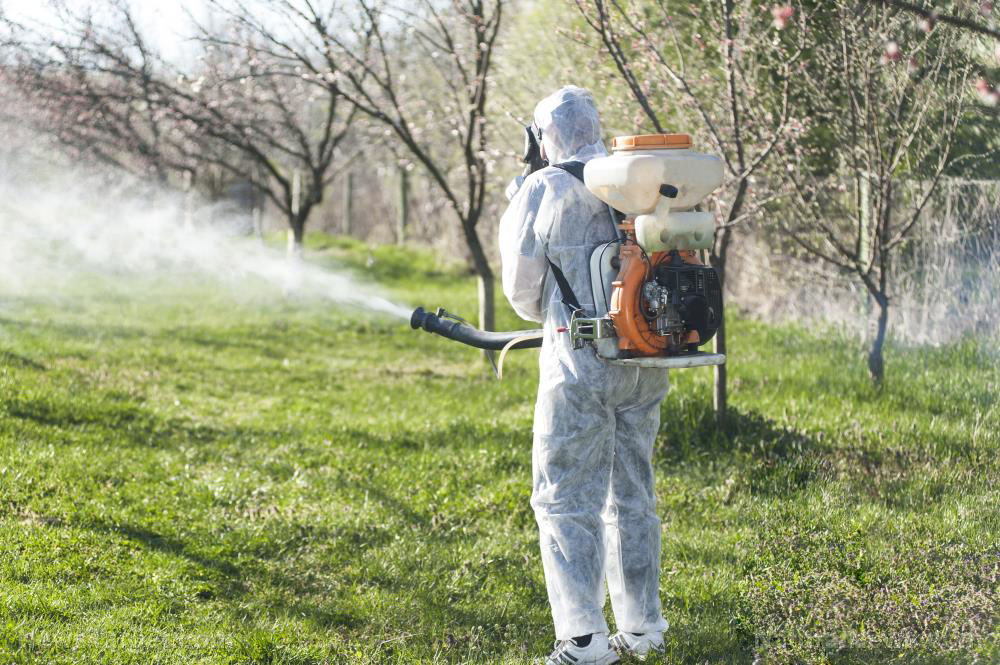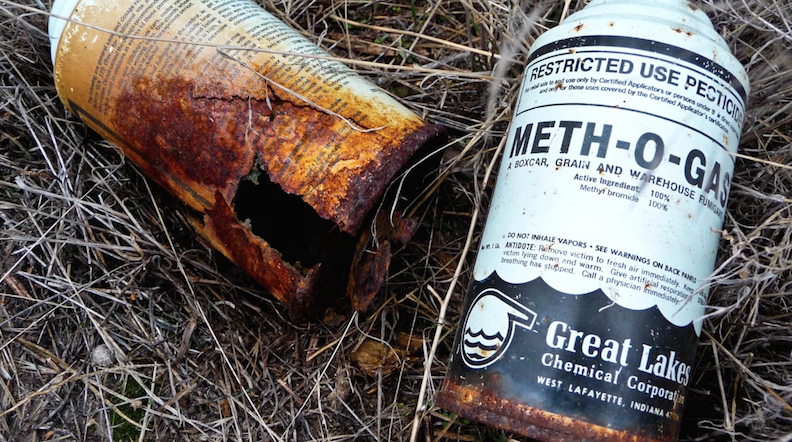
The report has garnered a substantial amount of attention because the UN has actually acknowledged the fact that pesticides can and do harm innocent people. In fact, the UN's report accuses global pesticide manufacturers of "systematic denial of harms" and indicates that some 200,000 people die each year from acute pesticide poisoning.
As Toxics Action Center explains, pesticides are one of the few chemicals deliberately introduced into the environment with the explicit intent of killing other living things. Whether it's a can of bug spray for that wasp's nest on your deck, or tractors spraying farmland, the goal is the same: To kill bugs or other pests like weeds. And no matter how you look at it, if it can kill a bug or a plant, there's a good chance that it can harm humans too.
Agrochemical companies that create and produce pesticides have long maintained that their products are essential to addressing the global hunger crisis. But is that really true? Experts from the UN certainly seem to disagree with the industry's sentiments.
Hilal Elver, the UN's special rapporteur on the right to food, has stated that this widely publicized belief about pesticides is truly nothing more than hot air. "It's a myth," Elver commented. She went on to say, “Using more pesticides is nothing to do with getting rid of hunger. According to the UN Food and Agriculture Organisation (FAO), we are able to feed 9 billion people today. Production is definitely increasing, but the problem is poverty, inequality and distribution.”
Elver also noted that the majority of pesticides are used on commodity crops and not crops that are needed to feed the world's hungry people. Soy crops and crops used for palm oil are two examples of these commodity crops that rely on pesticides. Elver says that pesticide makers do not deal with world hunger at all, but rather large-scale agricultural efforts.
In the report, Elver and co-author Baskut Tuncak, the UN's special rapporteur on toxins, detail the shortcomings of widespread pesticide use.
"Reliance on hazardous pesticides is a short-term solution that undermines the rights to adequate food and health for present and future generations," the report proclaims.
Tuncak also notes that while science continues to demonstrate that there are adverse effects associated with pesticides, proving a definitive link between specific human diseases or environmental damage and pesticide use has been challenging. This obstacle has been made nearly insurmountable by the systemic denial promoted by the agrochemical industry. Tuncak states that the industry has used aggressive and unethical marketing tactics to keep the harms of pesticides under wraps and out of the public eye.
"The power of the corporations over governments and over the scientific community is extremely important. If you want to deal with pesticides, you have to deal with the companies – that is why [we use] these harsh words. They will say, of course, it is not true, but also out there is the testimony of the people," Elver stated.
Jay Feldman, the executive director of Beyond Pesticides, a non-profit environmental organization, says that the $43 billion organic industry is more than enough proof that you don't need pesticides to feed people -- and it's certainly hard to disagree with him. Experts across the world have expressly stated that there are more sustainable farming methods out there that would help fight global hunger without the added side effect of poisoning people. The UN report, for example, points to natural methods of pest suppression and the use of crop rotation to boost sustainability and reduce the toxic burden of pesticide use.
Pesticides come with many health and environmental risks -- isn't it time that the world moves onto better and less hazardous things?
Sources:
Please contact us for more information.























